Many farmers will have drawn a collective sigh of relief that the Oireachtas committee on climate action didn’t adopt a carbon tax for farming that had been recommended by the Citizens' Assembley.
Most organisations have also welcomed the news that the Department of Agriculture has been told to promote Teagasc’s 28 point-plan for reducing climate emissions from agriculture.
However, peat rewetting, biogas production and a change in fertiliser have all been identified as areas that need internal transformation in the agriculture industry and farmers should consider what changes are coming down the tracks.
Fertiliser
One of the key findings of the committee report is to get farmers to better manage artificial fertiliser use.
This boils down to getting farmers to use more lime initially to bring their soil up to optimal pH levels and unlock existing nutrients in the ground.
Changing fertiliser type can also mitigate up to 0.5 MtCO2-eq annually
Targeted fertiliser use and changing fertiliser type can also mitigate up to 0.5 MtCO2-eq annually.
As previously reported, Teagasc came back with figures including all CO2 released by urea, including in its manufacturing, and concluded that replacing 50% of CAN used on grassland with protected urea would still deliver a drop in greenhouse gas emissions.
The committee also seems to be on the side of fertiliser switching.
In its report, it said: “The Department of Agriculture, Food and the Marine, in conjunction with Teagasc and the EPA, should undertake a review of nitrogen fertiliser management and imports in 2019, in light of the impacts of nitrogen on soil fertility, as well as EU climate and nitrate obligations.”
Farmers should watch this space, as the committee has advocated adopting Teagasc’s findings and changes to fertiliser types could be coming.
Bioenergy
Bioenergy production should be focused on indigenous crops that grow in Ireland, the committee stated.
Some farmers might recall the disaster that was miscanthus when it was grown in Ireland for bioenergy.
Clearly, the committee does not want a repeat of that particular saga.
Instead, it outlined how biogas and biomass can serve as important additions to energy production and support rural jobs.
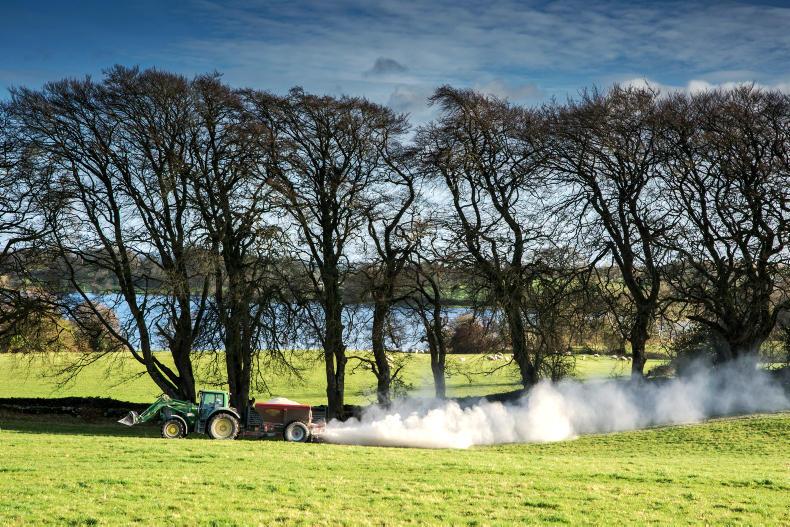
More lime spreading is recommended in the report as a matter of priority. / Barry Cronin
“Commercial forestry operations including Coillte are offering long-term supply contracts to businesses in manufacturing, pharmaceutical, food and hospitality sectors, but this emerging market must be closely supervised to ensure strict forestry standards and that real sequestration and mitigation is taking place,” the report said.
The committee also highlighted the Bord na Móna plant in Edenderry as an example of where biomass could replace fossil fuels.
However, the plant was also criticised for using imported palm oil husks as the key crop component.
A full national review to include bioenergy production has been ordered by the committee and farmers with an eye on tillage production should watch that space to see if any deals can be done on suitable crops for bioenergy crops in the future.
Anaerobic digestion (AD)
The use of slurry or farm waste mixed with other organic farm material such as grass to produce energy through AD was a key concept in the report.
It suggests the need for Government funding for AD co-ops where local farmers would be paid to provide raw materials for local energy production, which would be sold to the national grid.
The work done by Gas Networks Ireland (GNI) was highlighted as a role model for future schemes.
GNI set up green renewable agricultural zero emissions (GRAZE) located in Mitchelstown, Co Cork.
“The project will enable the injection of large amounts of biogas on to the natural gas network. The biogas will be produced from AD being developed on farms in the area,” the report said.
Future AD production has been mentioned as a way to diversify farm incomes, with GNI previously promising up to €28/t for raw silage.
Plant-based diets
Horticulture in Ireland should be increased in scale in order to tap into the global trend towards more plant-based diets, according to the committee.
While some may see this as pandering to the fashionable wave of veganism that has swept through social media recently, the report highlights that horticulture is the fourth-largest sector in terms of gross agriculture output (€433m in 2017).
“The trend towards more plant-based diets represents a commercial opportunity which Irish horticulture should avail of in the transition to a sustainable, low-carbon food system," the report stated.
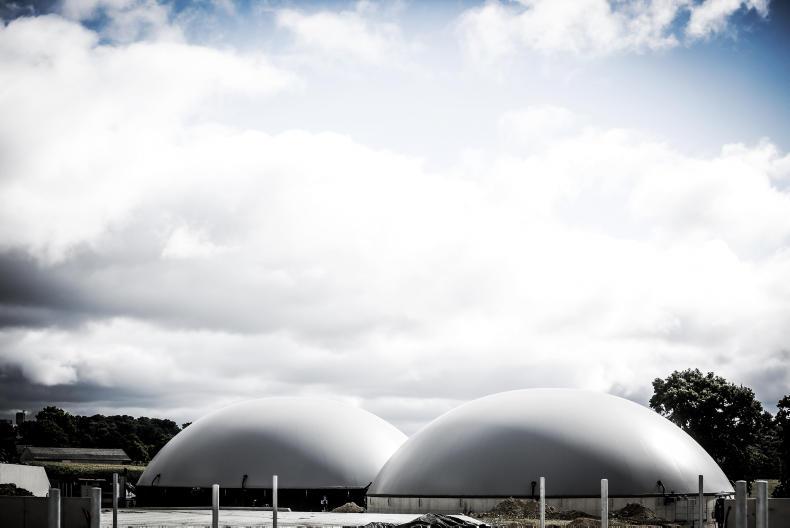
The anaerobic digester on the GAEC du Champ Fleury farm in Liffré, Brittany, France injects biogas into the national network. The report wants AD to play a much bigger part in Irish renewable energy. \ Grégory Brandel/GRDF
"Major opportunities exist through import substitution in horticulture that would improve national food security, increase sustainable rural employment, promote a healthier diet nationally and fight obesity, as well as reducing GHG emissions,” the report says.
The report criticised Teagasc for having relatively few advisers in the area and stipulated that more advisory supports were needed to encourage more farmers to grow crops.
Organic farming
Although the importance of the organic farming sector was recognised by the committee, it did not set aside the need for improved funding for the sector.
This will disappoint many in the organic industry, who have pointed out that it is a growing market at home and in Europe.
It will also surprise many after the recent reopening of the scheme specifically for dairy and tillage applicants.
“The State’s role in broadening opportunities for organic farming should be examined by the Standing Committee on Climate Action,” the report said.
This would indicate that the committee does not feel that there is any urgent need for additional State funding for the sector and the reopening of the scheme will have to wait until the next CAP.
The full Oireachtas report can be found here.
Read more
Should we ditch CAN fertiliser?
Gas for grass – €28/t for raw silage
EXCLUSIVE: the farming measures from the Oireachtas climate committee
Many farmers will have drawn a collective sigh of relief that the Oireachtas committee on climate action didn’t adopt a carbon tax for farming that had been recommended by the Citizens' Assembley.
Most organisations have also welcomed the news that the Department of Agriculture has been told to promote Teagasc’s 28 point-plan for reducing climate emissions from agriculture.
However, peat rewetting, biogas production and a change in fertiliser have all been identified as areas that need internal transformation in the agriculture industry and farmers should consider what changes are coming down the tracks.
Fertiliser
One of the key findings of the committee report is to get farmers to better manage artificial fertiliser use.
This boils down to getting farmers to use more lime initially to bring their soil up to optimal pH levels and unlock existing nutrients in the ground.
Changing fertiliser type can also mitigate up to 0.5 MtCO2-eq annually
Targeted fertiliser use and changing fertiliser type can also mitigate up to 0.5 MtCO2-eq annually.
As previously reported, Teagasc came back with figures including all CO2 released by urea, including in its manufacturing, and concluded that replacing 50% of CAN used on grassland with protected urea would still deliver a drop in greenhouse gas emissions.
The committee also seems to be on the side of fertiliser switching.
In its report, it said: “The Department of Agriculture, Food and the Marine, in conjunction with Teagasc and the EPA, should undertake a review of nitrogen fertiliser management and imports in 2019, in light of the impacts of nitrogen on soil fertility, as well as EU climate and nitrate obligations.”
Farmers should watch this space, as the committee has advocated adopting Teagasc’s findings and changes to fertiliser types could be coming.
Bioenergy
Bioenergy production should be focused on indigenous crops that grow in Ireland, the committee stated.
Some farmers might recall the disaster that was miscanthus when it was grown in Ireland for bioenergy.
Clearly, the committee does not want a repeat of that particular saga.
Instead, it outlined how biogas and biomass can serve as important additions to energy production and support rural jobs.

More lime spreading is recommended in the report as a matter of priority. / Barry Cronin
“Commercial forestry operations including Coillte are offering long-term supply contracts to businesses in manufacturing, pharmaceutical, food and hospitality sectors, but this emerging market must be closely supervised to ensure strict forestry standards and that real sequestration and mitigation is taking place,” the report said.
The committee also highlighted the Bord na Móna plant in Edenderry as an example of where biomass could replace fossil fuels.
However, the plant was also criticised for using imported palm oil husks as the key crop component.
A full national review to include bioenergy production has been ordered by the committee and farmers with an eye on tillage production should watch that space to see if any deals can be done on suitable crops for bioenergy crops in the future.
Anaerobic digestion (AD)
The use of slurry or farm waste mixed with other organic farm material such as grass to produce energy through AD was a key concept in the report.
It suggests the need for Government funding for AD co-ops where local farmers would be paid to provide raw materials for local energy production, which would be sold to the national grid.
The work done by Gas Networks Ireland (GNI) was highlighted as a role model for future schemes.
GNI set up green renewable agricultural zero emissions (GRAZE) located in Mitchelstown, Co Cork.
“The project will enable the injection of large amounts of biogas on to the natural gas network. The biogas will be produced from AD being developed on farms in the area,” the report said.
Future AD production has been mentioned as a way to diversify farm incomes, with GNI previously promising up to €28/t for raw silage.
Plant-based diets
Horticulture in Ireland should be increased in scale in order to tap into the global trend towards more plant-based diets, according to the committee.
While some may see this as pandering to the fashionable wave of veganism that has swept through social media recently, the report highlights that horticulture is the fourth-largest sector in terms of gross agriculture output (€433m in 2017).
“The trend towards more plant-based diets represents a commercial opportunity which Irish horticulture should avail of in the transition to a sustainable, low-carbon food system," the report stated.

The anaerobic digester on the GAEC du Champ Fleury farm in Liffré, Brittany, France injects biogas into the national network. The report wants AD to play a much bigger part in Irish renewable energy. \ Grégory Brandel/GRDF
"Major opportunities exist through import substitution in horticulture that would improve national food security, increase sustainable rural employment, promote a healthier diet nationally and fight obesity, as well as reducing GHG emissions,” the report says.
The report criticised Teagasc for having relatively few advisers in the area and stipulated that more advisory supports were needed to encourage more farmers to grow crops.
Organic farming
Although the importance of the organic farming sector was recognised by the committee, it did not set aside the need for improved funding for the sector.
This will disappoint many in the organic industry, who have pointed out that it is a growing market at home and in Europe.
It will also surprise many after the recent reopening of the scheme specifically for dairy and tillage applicants.
“The State’s role in broadening opportunities for organic farming should be examined by the Standing Committee on Climate Action,” the report said.
This would indicate that the committee does not feel that there is any urgent need for additional State funding for the sector and the reopening of the scheme will have to wait until the next CAP.
The full Oireachtas report can be found here.
Read more
Should we ditch CAN fertiliser?
Gas for grass – €28/t for raw silage
EXCLUSIVE: the farming measures from the Oireachtas climate committee






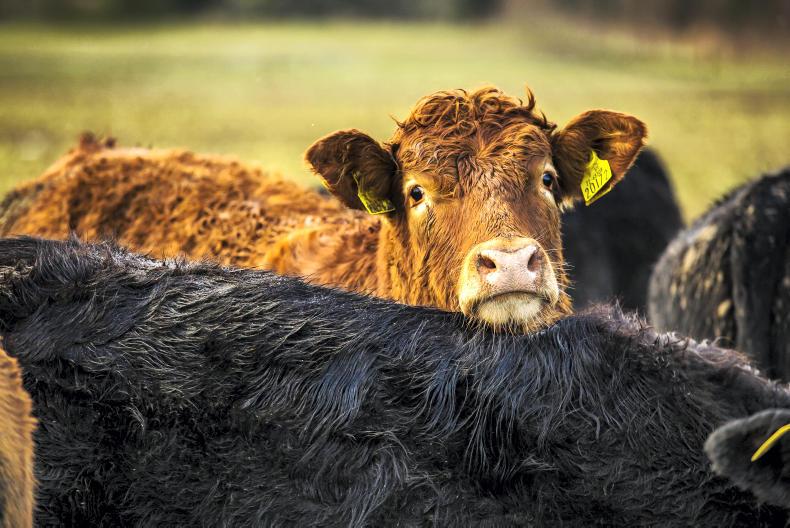

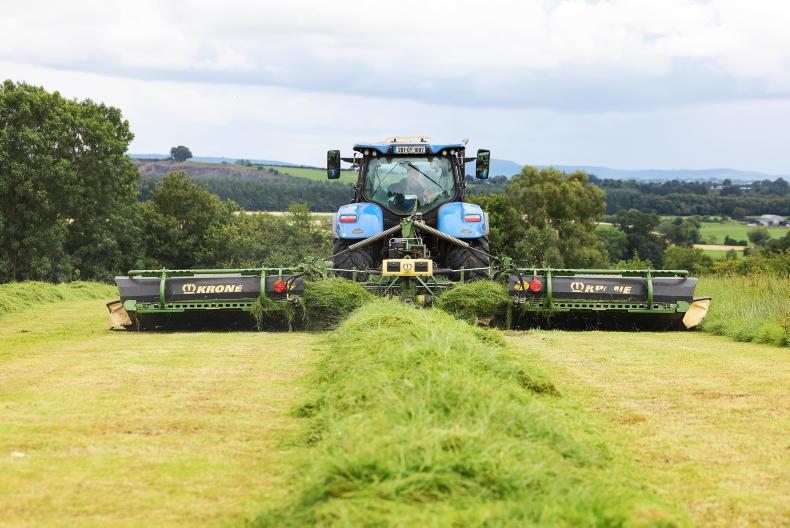
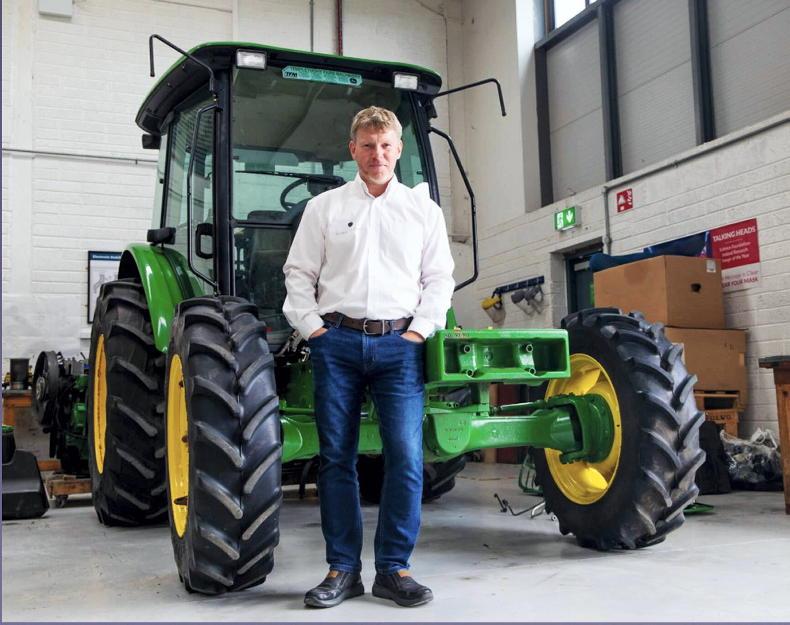
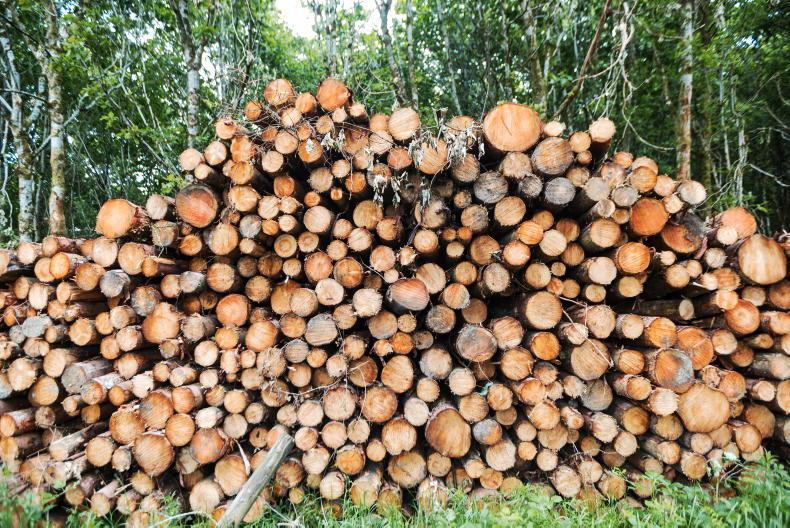
SHARING OPTIONS